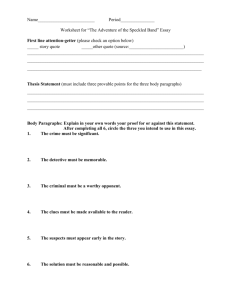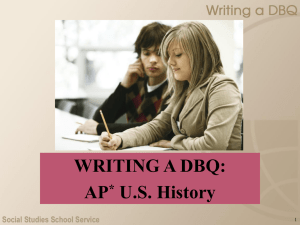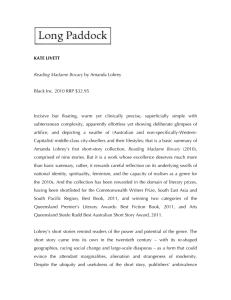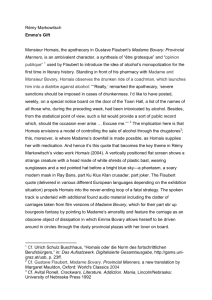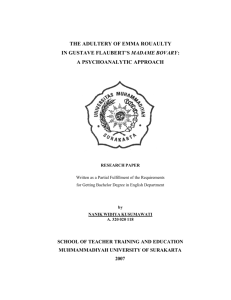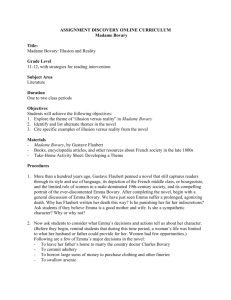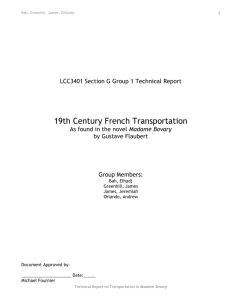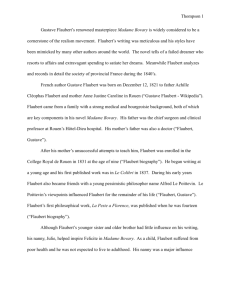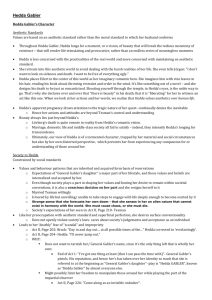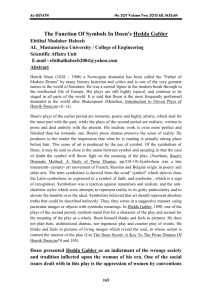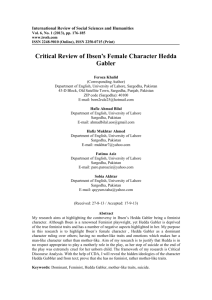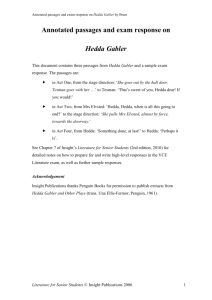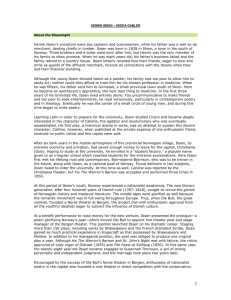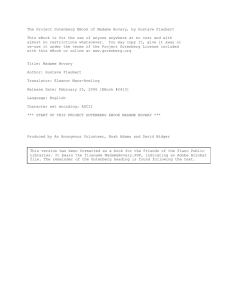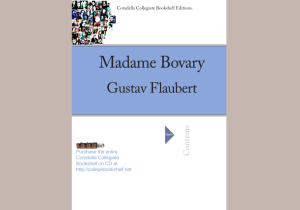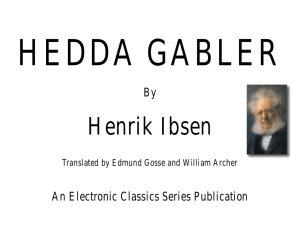English 2112 –Fall 2014 Critical Essay Information
advertisement
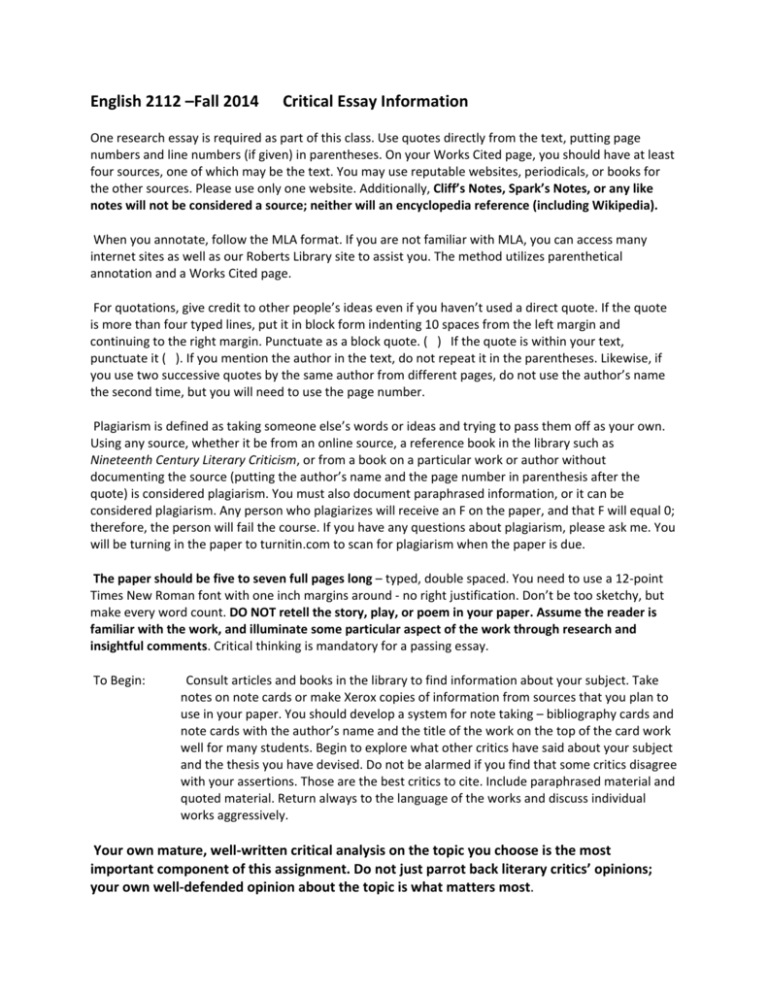
English 2112 –Fall 2014 Critical Essay Information One research essay is required as part of this class. Use quotes directly from the text, putting page numbers and line numbers (if given) in parentheses. On your Works Cited page, you should have at least four sources, one of which may be the text. You may use reputable websites, periodicals, or books for the other sources. Please use only one website. Additionally, Cliff’s Notes, Spark’s Notes, or any like notes will not be considered a source; neither will an encyclopedia reference (including Wikipedia). When you annotate, follow the MLA format. If you are not familiar with MLA, you can access many internet sites as well as our Roberts Library site to assist you. The method utilizes parenthetical annotation and a Works Cited page. For quotations, give credit to other people’s ideas even if you haven’t used a direct quote. If the quote is more than four typed lines, put it in block form indenting 10 spaces from the left margin and continuing to the right margin. Punctuate as a block quote. ( ) If the quote is within your text, punctuate it ( ). If you mention the author in the text, do not repeat it in the parentheses. Likewise, if you use two successive quotes by the same author from different pages, do not use the author’s name the second time, but you will need to use the page number. Plagiarism is defined as taking someone else’s words or ideas and trying to pass them off as your own. Using any source, whether it be from an online source, a reference book in the library such as Nineteenth Century Literary Criticism, or from a book on a particular work or author without documenting the source (putting the author’s name and the page number in parenthesis after the quote) is considered plagiarism. You must also document paraphrased information, or it can be considered plagiarism. Any person who plagiarizes will receive an F on the paper, and that F will equal 0; therefore, the person will fail the course. If you have any questions about plagiarism, please ask me. You will be turning in the paper to turnitin.com to scan for plagiarism when the paper is due. The paper should be five to seven full pages long – typed, double spaced. You need to use a 12-point Times New Roman font with one inch margins around - no right justification. Don’t be too sketchy, but make every word count. DO NOT retell the story, play, or poem in your paper. Assume the reader is familiar with the work, and illuminate some particular aspect of the work through research and insightful comments. Critical thinking is mandatory for a passing essay. To Begin: Consult articles and books in the library to find information about your subject. Take notes on note cards or make Xerox copies of information from sources that you plan to use in your paper. You should develop a system for note taking – bibliography cards and note cards with the author’s name and the title of the work on the top of the card work well for many students. Begin to explore what other critics have said about your subject and the thesis you have devised. Do not be alarmed if you find that some critics disagree with your assertions. Those are the best critics to cite. Include paraphrased material and quoted material. Return always to the language of the works and discuss individual works aggressively. Your own mature, well-written critical analysis on the topic you choose is the most important component of this assignment. Do not just parrot back literary critics’ opinions; your own well-defended opinion about the topic is what matters most. English 2112 –Fall 2014 Critical Essay Topics 1. How does Tartuffe exemplify the Enlightenment or Age of Reason? 2. Discuss at least three important “issues” in Part IV of Gulliver’s Travels which are still relevant concerns today (i.e. the reasons men go to war, etc.). Examine the attitudes of “enlightened” Europeans and compare/contrast those with the prevailing attitudes toward those issues in modern society. 3. Is philosophic optimism still a leading “philosophy” today? Using Candide as an example, discuss why philosophic optimism emerged, how it was initially received, and in what form(s) it exists today. Are there modern writers/thinkers who satirize this way of thinking as Voltaire did? 4. Compare/contrast two or three Romantic poets according to their themes and styles. 5. Compare/contrast, using specific examples, the overall thematic differences between Blake’s Songs of Innocence and Songs of Experience. 6. Discuss the character of Emma in Madame Bovary and examine Flaubert’s attitude toward her. 7. Discuss the social picture and social stereotypes in the novel Madame Bovary (such as the husband, physician, landowner, law clerk, pharmacist, merchant usurer, the beggar, etc.) 8. Compare/contrast the protagonists Emma in Madame Bovary and Hedda in Hedda Gabbler. 9. Examine the themes of death and dying in at least three of the following works: “The Death of Ivan Ilyich,” Madame Bovary, Hedda Gabler, and “Matryona’s Home.” 10. Write an original satire that “mimics” Swift’s “A Modest Proposal.” Choose a current issue to satirize, and research the arguments pros and cons, so that you can present both sides. This essay should be about the same length as Swift’s, and it should resemble it closely in structure, including the “cynical” suggestions (in list form) of the narrator’s recommendations and the more logical recommendations of the author (you). You will need to include a Works Cited List of publications, documents, essays, etc. from which you have gathered background information for your essay. • If you have an idea for a topic not listed above, please make an appointment with me to discuss.
